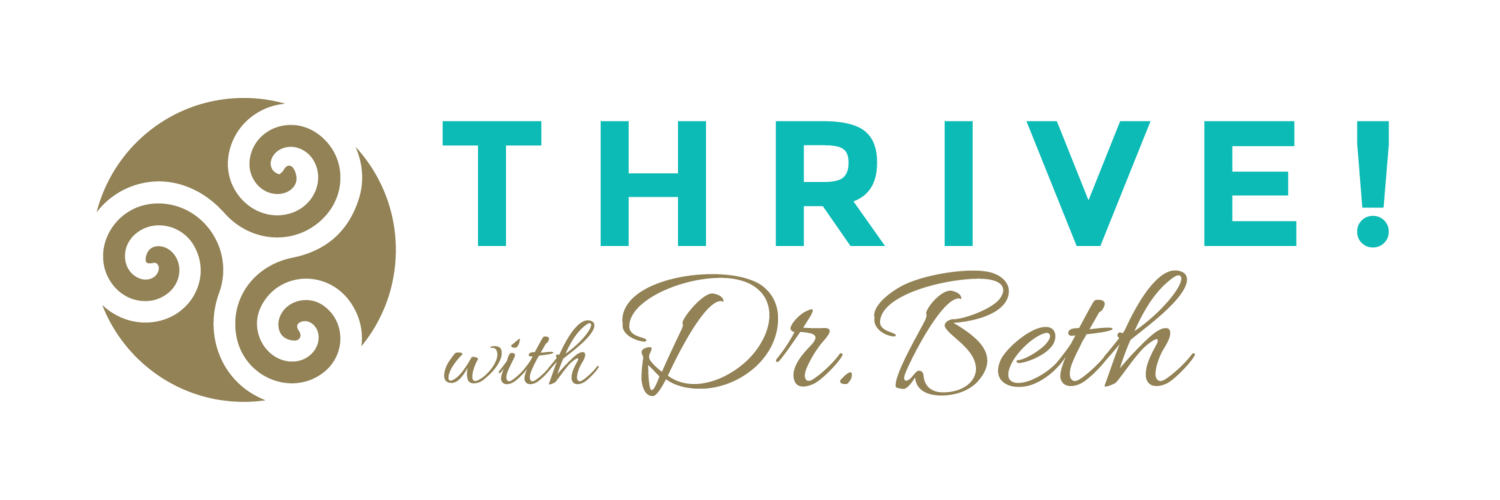
March 17, 2020
Beth Haggett, MSW, LCSW, Ph.D. MPEC, NBHWC
Coaches can be the oil in the machinery during times when things are not running well in society, in organizations, in the world. It is critical that coaches are prepared, willing, and have the training and the support they need to care for themselves first and then to be there to support others in times of stress and uncertainty. Coaches can also be thought of as an “organizational immune system,” helping to buffer employees from both internal and external stressors such as potential infection, loss of connection, loss of job or income and loss of freedom during difficult and stressful times such as those we are experiencing in our country and the world during the Coronavirus Pandemic.
I have seen employers question whether coaches should provide support in areas other than the ones being measured or those that are directly tied to KCS. The fear that coaches might be talking with employees about things that do not seem to really matter to the bottom line has seemed to be an issue for some. “Why should I pay for coaching that might take time away from critical work to help an employee deal with a personal matter?” seemed to be what employers wanted to ensure they could prevent. I have always believed that a “happy worker is a more productive worker” so that anything “top of mind” was a valuable thing for coaches to be supportive of. If an employee can find support from a coach in any area troubling them, they are better able to then focus on the job at hand and be more productive overall. When someone is in “fight or flight” about a personal concern, the frontal lobe shuts down and they are not able to access their creativity, and problem-solving abilities. This makes one more inclined to respond to problems and situations with automatic sub-optimal rather than creative, solutions.
One of the critical things I stress in my two-day virtual or in-person Coach Training Workshop is the necessity of learning self-awareness and self-care. Some may question why this seems so important when all is running smoothly. However, it is easy to see how critical it is during times of uncertainty when coaches and coachees alike are under high levels of stress.
We have all heard of Maslow’s Hierarchy of Needs and understand that when people are concerned about basic necessities and physiological needs such as food, shelter, and safety, they are not able to focus on work and productivity. Coaches can help provide for the third tier in the hierarchy model, that of love and belonging. By helping coachees feel connected, cared about, heard and seen they can help ameliorate the stress response and keep people from moving into “fight or flight” mode which increases stress hormones and lowers important things like the immune system threatening the body’s ability to fight off illness or infection. This fight or flight response can also affect the overall organizational immune system making workers less productive and less creative.
Having coaches in place throughout the organization can help keep both individual and organizational immune system’s strong and well-functioning. Let’s give ourselves, our families, our communities, and our organizations the best chance of fighting off possible illness as well as buffer ourselves against the negative effects of fear, panic, isolation, and lack of connection. It is a great time to implement a coaching program or to shore up support for the coaches you have. Make sure your coaches know what a difference they can make to the overall health of the organization. It may also be helpful to review some of the tips that make remote coaching more effective.
Tips for Remote Coaching
- You might offer to take a few moments before the start of each session to enjoy a breathing meditation together
- Pay attention to facial expressions and body language if using videoconferencing capability which is preferable if possible
- Notice vocal elements, remembering to listen for what is being said and what is not being said
- It is especially important to ASK for feedback from your Coachee and ask what you might do to be more supportive or responsive to immediate needs and circumstances. (Coachee may be working from home with children about)
- Pay special attention to understanding culture and the environment
- Avoid Distractions
- Use a headset (and webcam if possible)
- Allow for silences
- Focus on your tone and voice quality
- Set an agenda (Be sure to differentiate between overarching goals and the agenda for each session).
- Overcommunicate-reach out before and check back after each session
- Remember your ABC’s (Ask Before Coaching)
Diaphragmatic Breathing and Self-Care
One of the quickest simplest ways of triggering the relaxation response in the autonomic nervous system is to practice regular diaphragmatic breathing techniques. (Herbert Benson, The Relaxation Response, 1976 Mind-Body Medical Institute, Harvard)
I include a simple practice here and you can also access my audio recording of diaphragmatic breathing and other guided imagery exercises here https://thrivewithdrbeth.com/guided-imagery/
Put your earbuds in, allow your eyes to close and take a few moments to relax and refresh. Doing this regularly will attune your autonomic nervous system to work at a healthier, more relaxed tempo which can improve your overall health. Some of you may prefer to read or listen and then do the exercises on your own.
An important part of being a coach is practicing self-awareness and presence. If we are stressed, hurried, frazzled, sick, or just not feeling well, we will be less aware of self or others and less able to discern the subtle nuances of a situation. We don’t always realize the messages we are giving off, thinking we can hide our state of mind from others. Diaphragmatic breathing is a foundational principle in mind-body medicine. It is used in meditative practices, biofeedback, hypnosis, autogenics, imagery, mindfulness meditation, and yoga. I work with horses and they are perfect biofeedback machines. If you are frazzled, distracted, angry or frustrated a horse will sense it immediately and you will get back what you are giving off. I’m going to teach you an easy skill that can be very helpful in calming the body and mind and contributing to your ability to be more aware of yourself and others.
The following exercise works to trigger a relaxation response in the Vagus nerve (Herbert Benson, The Relaxation Response, 1976 Mind-Body Medical Institute, Harvard). The Vagus nerve runs from your brainstem, down your spinal column and affects the regulation of your lungs and liver and even your heart rhythm. It has been called “the nerve of compassion” because when the relaxation response is triggered, we are more able to feel feelings such as compassion, gratitude and even love. Most of the time, we breathe into the upper half of our lungs. The air in the lower half becomes old and stale. This can make us feel tired or stressed. Shallow breathing (or chest breathing) causes a constriction of the chest and lung tissue over time, decreasing oxygen flow and delivery of oxygen to your tissues. Deep, rhythmic breathing expands and moves the diaphragm muscle, the cone-shaped muscle under your lungs, expanding the lungs’ air pockets, invoking the relaxation response, and massaging the lymphatic system and other vital internal organs. Deep breathing is the fastest way to trigger your parasympathetic nervous system through a relaxation response.
Our breath can act as both a barometer, helping us to recognize when we are feeling stressed, and a regulator helping us to calm our body, mind, and spirit as we slow and deepen our breathing. In other words, breathing can both respond to our emotional state (hyperventilation) and affect our emotional state! Deep breathing induces relaxation.
It is important to soften and expand your belly on the in-breath and to release and allow your belly to deflate on the out-breath. Thich Nhat Hahn is an inspirational mindfulness teacher. He offers a simple breathing meditation. “Breathing in, I calm my body. Breathing out I smile.”
Take a moment now and come into your body. Most of us live out here in the world of thoughts much of the time. Sense your awareness returning to your body. It is important to soften and expand your belly on the in-breath and to release and allow your belly to deflate on the out-breath.
Diaphragmatic Breathing Exercise for Coaches
Now you may place one hand on your belly if you like, to bring your awareness to your belly rising and filling with air as you breath in, and lowering and deflating as you breath out; placing one hand on your heart can help you to tune in to heart-centered feelings such as gratitude, love, and appreciation.
Sit quietly with eyes closed if you feel comfortable or with a soft gaze downward. Breathe slowly and deeply, in through your nose and out through your mouth. Allow your belly to be soft, expanding on the in-breath and relaxing on the out-breath. You may say to yourself, “soft” as you breathe in and “belly” as you breathe out. When thoughts come, let them come, and let them go, as a wave might flow in from the sea and flow out again…returning your mind to “soft…belly”. Sometimes I like to say the words peace as I breathe in; imagining a sense of peace coming in with each breath and love or compassion as I breathe out, envisioning sending love out with each breath. Enjoy the feeling of peace and relaxation you can feel as you practice simultaneously breathing deeply and letting go, consciously relaxing any muscles you notice are tight. And now when you are ready, become aware again of the feeling of sitting on your chair, sensing your feet on the floor, feeling supported and then slowly and gently allow your attention to return to the room feeling refreshed and ready for what is next.
Dr. Beth is a Licensed Clinical Social Worker(LCSW), a Master Personal and Executive Coach (MPEC), has the National Board of Health & Wellness Coaches certification (NB-HWC) and has a Ph.D. in Mind-Body Medicine. She teaches Evidenced-Based Coaching for Saybrook University (https://www.saybrook.edu/integrative-wellness-coaching/). You can learn more about her and her work at https://thrivewithdrbeth.com/

